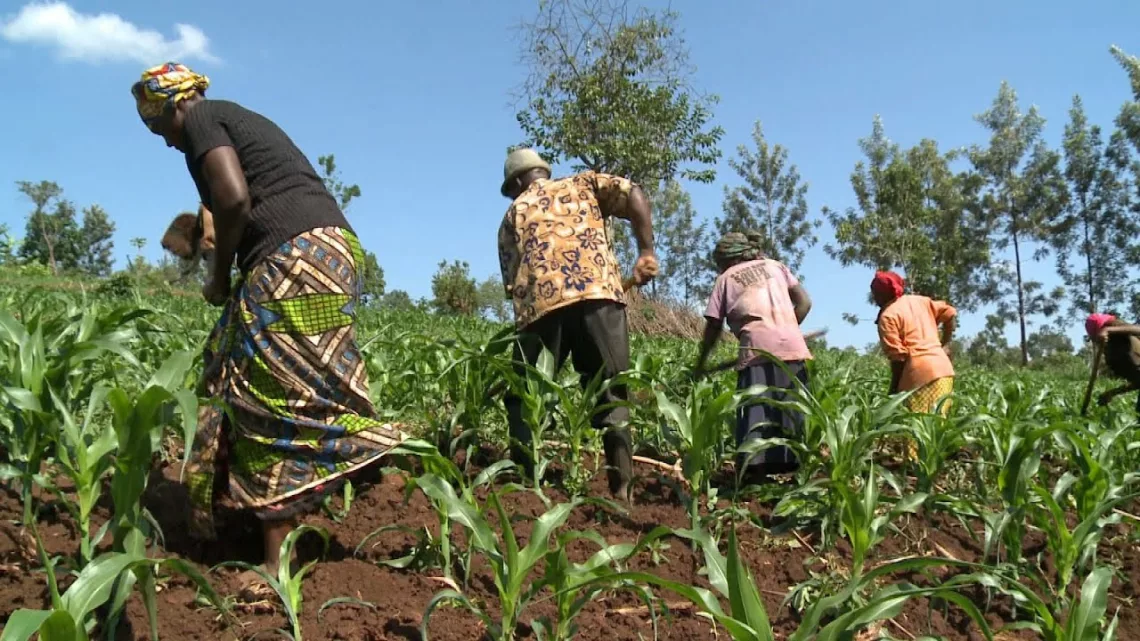Medium-term agricultural development framework is beneficial to drive Nigeria’s agricultural development especially when directed at addressing a myriad of challenges to the rapid development of the agriculture sector.
Such framework when particularly and effectively implemented can deliver sustained prosperity, inclusive and equitable growth by meeting domestic food security goals, generating exports and supporting sustainable income and job growth.
To help Nigeria transform its agricultural sector and contribute to the country’s economic development, the Food and Agriculture Organisation of the United Nations (FAO ) has been at the fore front of developing medium tarm frameworks to deliver it’s works and support for strong agricultural development for countries.
For instance, between 2018 to 2022, FAO sets out five government priority areas to guide the Food and Agriculture Organization of the United Nations’ (FAO) partnership and support to the Government of Nigeria that brought together innovative international best practices and global standards with national and regional expertise during a five-year period.
At the elapsed the 2018-2022 framework the federal government in priority collaboration with the Food and Agriculture Organisation of the United Nations (FAO) again signed the new Country Programming Framework (CPF) 2023 – 2027.
The CPF outlines FAO Nigeria’s medium-term priorities for a five-year programming circle that defines the agency’s support and delivery of its expertise to the government of Nigeria, to agriculture and natural resources management and require $99.5 million for full implementation.
The current CPF provides the basis for collaboration and partnership in four strategic priority areas of sustainable and inclusive agri-food systems for improved productivity, increasing resilience of food and agriculture-based livelihood systems, healthy and nutritious diets and sustainable natural resource and climate management.
The aimed of the collaboration is to accelerate the achievement of the Sustainable Development Goals (SDGs) 2030 target agenda towards food and nutrition security based on the FAO’s global strategy to realise the Four Betters; better production, better nutrition, better environment and a better life.
At a signing ceremony in Abuja last week, minister of agriculture and rural development, Dr Mohammad Mahmood Abubakar said the frameworks is in line with the National Development Plan (2022-2025) and will aggressively drive the economic diversification programmers and transform food systems to ensure sufficient food in the country as well as export for foreign earnings.
The federal government also pledged commitment to practical implementation of the CPF and invited support from all stakeholders to ensure its successful implementation.
The minister said, “I would wish to reiterate that CPF is coming at the time farmers desire it most with expectations that the program will deliver to enable vulnerable households access to better food, maintain healthy diets, improve rural economy.
“It is essential to note that if agriculture sector must be transformed, we must all prepare to invest massively in the sector and rise to the call against hunger and food wastes in the value chains. We should indeed develop strong action Plan to addressing the impact of climate change, global pandemic, institutional inadequacies, post-harvest losses and weak supply chain on food systems in partnership with development partners.”
According to the FAO representative to Nigeria and ECOWAS, Fred Kafeero, the priorities area consider the FAO competence and comparative advantages in supporting the government of Nigeria to achieve the country’s vision of development and transformation of the agri food systems.
He said, “May I use this same opportunity to thank the government alongside the UN agencies and our donor partners to complemented FAO technical support for the successful implementation of the recently closed CPF 2018 – 2022 and I wish to assure you all that FAO will continue to partner with you to provide the necessary technical and policy support aimed at reducing poverty and improving food security and reducing malnutrition in the country.
“The CPF is aligned with the national development policies and programmes in this country, it is aligned with our offer and support as the United Nations in Nigeria, it is also aligned with our FAO global strategic framework that emphasises the transformation of agri-food systems in countries.”





